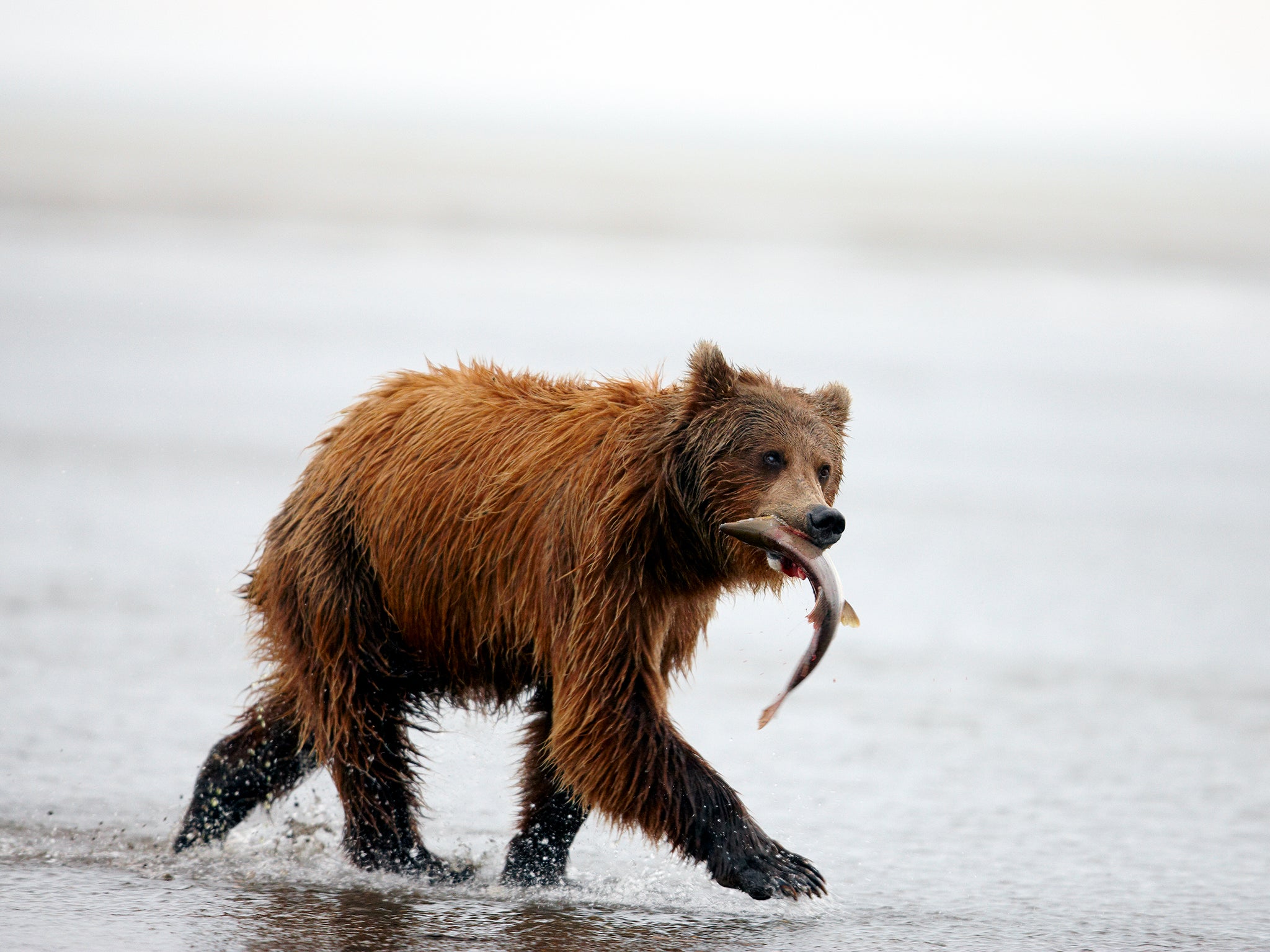Brown bears choosing a vegetarian diet over salmon due to climate change
Elderberries are coming into fruit earlier in the year, clashing with the salmon run and forcing the bears to pick

Brown bears on Alaska’s Kodiak Island are switching to a vegetarian diet of elderberries in preference to salmon because the warmer temperatures are ripening the fruit earlier in the year.
Normally the bears would eat up to 75 per cent of the salmon that swim up the rivers to spawn up until about late August.
And, when this plentiful supply of protein started to dry up, the bears would switch to the elderberries that usually come into fruit in late August or early September.
However, global warming has seen temperatures in Alaska rise, bringing forward the elderberry season so that it begins as early as 14 July.
Faced with a choice between the two meals, the bears have been choosing the berries rather than the fish, according to a new study.
Writing in the journal Proceedings of the National Academy of Sciences, researchers said their analysis had found red elderberries had been fruiting 2.5 days earlier per decade.
“In years with anomalously high spring air temperatures, elderberry fruited several weeks earlier and became available during the period when salmon spawned in tributary streams,” they wrote.
“Bears departed salmon spawning streams, where they typically kill 25 to 75 per cent of the salmon, to forage on berries on adjacent hillsides.
“This prey-switching behaviour attenuated an iconic predator-prey interaction and likely altered the many ecological functions that result from bears foraging on salmon.
“If these trends continue, by 2070, the average onset of berry availability would occur during the average peak of salmon availability.”
However they added that coastal brown bears would continue to depend on healthy runs of salmon to “meet much of their energy needs”.
The researchers, from Oregon State University, Montana University, the US Fish and Wildlife Service and other institutions, said that climate change was “altering the seasonal timing of life cycle events in organisms across the planet”.
The main focus of previous studies had been on species that are evolving to become out of sync so, for example, migrating animals like caribou can arrive at traditional feeding grounds long after plants have come into leaf and the shoots are less nutritious.
But the researchers said climate-induced synchronisation could also create “novel interactions”.
The bears’ switch to berries could have knock-on ecological effects.
“Climate change is altering the seasonal timing of biological events, effectively rescheduling the potential interactions among species,” the researchers added.
“Bears switched from eating salmon to elderberries, disrupting an ecological link that typically fertilises terrestrial ecosystems and generates high mortality rates for salmon.”
Join our commenting forum
Join thought-provoking conversations, follow other Independent readers and see their replies
Comments
Bookmark popover
Removed from bookmarks